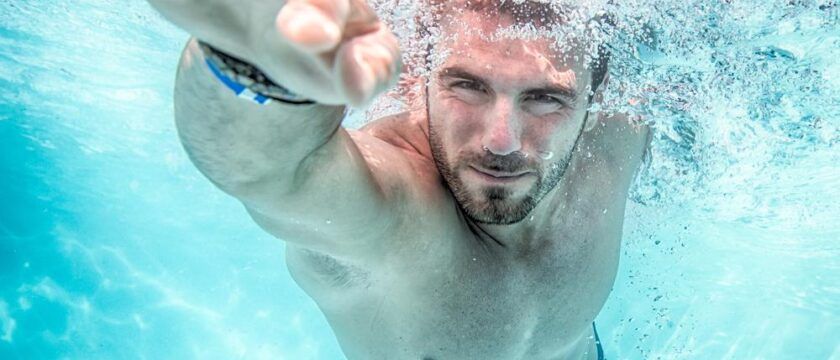4 Cognitive Benefits Of Swimming
By Catherine M, Staff Editor
Last Updated on March 6th, 2023 / Published on October 11, 2018

Swimming has tremendous health benefits as it helps a person build strength, muscular balance, improve blood circulation, and a lot more. It is also an important life and survival skill, which makes most parents teach their kids swimming in early childhood itself. Apart from this, you will also find most fitness junkies take up swimming as an exercise routine, as it helps them attain the desired athletic body. However, the benefits of swimming are not limited to the physical body, it also helps one with several cognitive skills that are equally important to lead a successful life. Therefore, swimming is not only good for your body, but it is also great for your brain.
When you swim, the movements your body stimulate the brain to release chemicals that promote the growth of neurons or nerve cells. It also affects the neurotransmitters like serotonin that influence the mood and relieves stress by releasing ANP, which is a stress-reducing hormone. Therefore, when you come out of a swimming pool after a couple of laps, you will find yourself more relaxed not only physically, but also mentally. Read on to know more about swimming and how it provides several cognitive benefits.
A boost in blood flow for better cognitive functions
When there is a boost in your blood flow, you will experience improved mood, memory, clarity, and focus. According to a study conducted in 2004, immersing in a steel pool results in an increased blood flow to the brain. Also, when you are immersed in water up to the level of your heart, your blood flow to the brain will be higher. The blood flow to the middle cerebral arteries is likely to increase by almost 14 percent, and the blood flow to the posterior cerebral arteries is likely to increase by almost 9 percent when you swim. Moreover, most fitness trainers believe that any repetitive activities like running, dancing, and swimming increase the blood flow to the brain.
The increase in the brain blood flow improves a person’s mood, concentration and focus, and overall cognitive function. It also helps a person’s deal with stress better and reduces anxiety.
Stimulation of brain chemicals for better mood
Many of us have been in situations that compel us to overthink and make us sad or depressed. While swimming is no cure to depression, it does help one combat depressive symptoms by releasing neurotrophic factors in the brain like endorphins. Endorphins also help in relieving tension, managing stress, anxiety, and mood.
According to a study, the techniques used in swimming that include strokes, breathing, and repetitiveness are often meditative that in turn provides relief from tension, panic, and reduce feelings of sadness.
Therefore, if you are having seconds thoughts about starting your swimming workout from tomorrow, just know that swimming is great for your brain chemistry, and it adds to the list of reasons you should start swimming every day.
Promotes new neurons for better memory
Memory is one of the most essential cognitive skill required by any individual. A person with a good memory is bound to excel in almost everything from academics to sports to career. While there are multiple ways you can improve your memory, one of the best ways is through swimming. Swimming helps reverse brain damage from stress and promotes new neurons through hippocampal neurogenesis, which is a neural circuit plasticity that results in the growth of new neurons aka brain cells. This subsequently results in better memory.
Enhances gross and visual motor skills
Motor skills are usually developed when we are kids. Motor skills help children to take control of their bodies and become confident. Kids learn and develop motor skills most when they are playing. It helps them control the large muscles of their bodies that are required for walking, jumping, skipping, and more. One of the best ways to promote motor skills in children is by teaching them how to swim. According to a study, children who learn swimming at a young age reach several developmental milestones like motor skills that include coordination, visual-motor skills, and tasks that involve mathematical calculations like telling the correct time, shopping, playing, and more.



